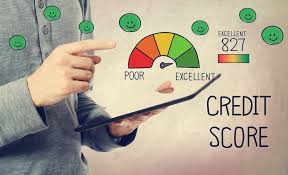
Maintaining good credit habits requires consistent effort and responsible financial behavior. By incorporating simple habits into your daily routine, you can build and sustain a strong credit score, which opens doors to better financial opportunities. Here are some practical tips to keep your credit healthy.
1. Monitor Your Credit Regularly
- Why It Matters: Regularly checking your credit report helps you catch errors, identify signs of fraud, and stay informed about your credit status.
- How to Do It:
- Use free credit monitoring services or request a free credit report from AnnualCreditReport.com.
- Check for inaccuracies, such as incorrect account balances or unauthorized accounts, and dispute them promptly.
2. Pay Your Bills on Time
- Why It Matters: Payment history is the most significant factor affecting your credit score, making timely payments essential for maintaining good credit.
- How to Do It:
- Set up automatic payments for recurring bills like loans, credit cards, and utilities.
- Use payment reminders on your phone or through your banking app to avoid missing due dates.
3. Keep Your Credit Utilization Low
- Why It Matters: Credit utilization (the ratio of your credit card balances to your credit limits) directly impacts your credit score.
- How to Do It:
- Aim to keep your credit utilization below 30%, and ideally under 10%, for the best results.
- Pay off balances in full each month or make multiple small payments throughout the billing cycle.
4. Avoid Unnecessary Credit Applications
- Why It Matters: Each hard inquiry from a credit application can lower your score slightly and stay on your report for up to two years.
- How to Do It:
- Apply for credit only when necessary, such as for a mortgage or auto loan.
- Research lenders and prequalify for offers to minimize hard inquiries.
5. Use Credit Responsibly
- Why It Matters: Proper use of credit demonstrates reliability to lenders and helps build a positive credit history.
- How to Do It:
- Use your credit card for routine purchases you can afford, such as groceries or gas.
- Avoid maxing out your credit cards, even if you plan to pay the balance in full.
6. Diversify Your Credit Mix
- Why It Matters: A mix of different types of credit (e.g., credit cards, auto loans, mortgages) can improve your credit score by showing lenders you can handle various forms of credit.
- How to Do It:
- Only take on new types of credit if it aligns with your financial needs and goals.
- Maintain a balance between revolving credit (e.g., credit cards) and installment loans (e.g., student or personal loans).
7. Avoid Closing Old Credit Accounts
- Why It Matters: The length of your credit history affects your score, and older accounts contribute positively to this factor.
- How to Do It:
- Keep old accounts open, even if you don’t use them frequently, to maintain your credit history.
- Use older credit cards occasionally for small purchases to keep them active.
8. Set a Credit Usage Budget
- Why It Matters: Having a clear budget prevents overspending and ensures you can pay off your credit card balances on time.
- How to Do It:
- Allocate a portion of your monthly budget specifically for credit card spending.
- Track your expenses regularly to ensure you stay within your limits.
9. Be Cautious About Co-Signing Loans
- Why It Matters: Co-signing makes you equally responsible for the debt, and missed payments can damage your credit score.
- How to Do It:
- Only co-sign if you trust the borrower and are confident they will make timely payments.
- Monitor the account activity to ensure payments are being made.
10. Educate Yourself on Credit Basics
- Why It Matters: Understanding how credit works empowers you to make informed financial decisions that positively impact your credit score.
- How to Do It:
- Read about credit-related topics, such as how credit scores are calculated and how different actions affect your score.
- Stay updated on changes in credit reporting policies or laws that might impact you.
Conclusion
Good credit habits require discipline and consistency, but the rewards are worth the effort. By paying bills on time, monitoring your credit, and using credit responsibly, you can maintain a strong credit profile and enjoy the financial benefits it brings. Remember, building and preserving good credit is a lifelong process—small, daily actions can make a big difference over time.
AdvanceWithFinance
Proudly powered by WordPress
Pages